Welcome to Management And Commerce
About Managemet:
The genesis of the Department of Management Studies dates back to the year 1992 and it offers MBA and Ph.D (Full time & Part Time). The MBA programme offers 9 specializations.
The department over the years has earned an enviable reputation for excellence; thanks to instruction by the highly qualified academics of distinction and it boasts of qualified faculty members with rich experience in academic, industry and research. Students who have graduated are already serving in responsible positions, in India and abroad in various capacities at senior level management and even as entrepreneurs.
Department of Management Studies, BIHER endeavors to equip young people with the skills they need to compete in an increasingly demanding global environment. At the individual level the Department recognizes that success depends not just on our own knowledge and wisdom but also upon the ability to recruit, develop and empower an effective workforce. We also model the qualities that we require in our employees – and demonstrate the value of incorporating ethics into everyday business practice and decision making.
The Department provides an education that equips students with cutting-edge knowledge, professional and research skills, and ethical decision-making abilities essential for successful careers in business, industry, education, government, and for further studies at graduate and professional levels. The Department supports and promotes research and intellectual contributions aimed at improving teaching, business opportunities in the region, and awareness of global issues. The Department offers a rich Curriculum which encompasses various Electives which are Industry relevant.
The Department has carved a niche for itself in providing exemplary education and has always been a forerunner in conducting many National and International Conferences.The Department has realized how crucial innovation, entrepreneurship, creativity and critical thought are to pushing the business world forward. In an effort to stay ahead of the curve, Department of Management Studies, BIHER has also identified the increasing influence of factors such as new technology; globalization and sustainability have on the world economy.The Department of Management Studies employs a dynamic approach to education, adapting the curricula to meet emerging trends and equips students with the progressive skills necessary to succeed.
- Ranked as the 5th Best B School in the Regional Ranking by Business Today in 2020 and 2021.
- Ranked at the 12th place in IIRF 2021in the Best B School Ranking in the National Cluster.
- Ranked at the 6th place (All India Ranking) in ROI by Business Today in 2021.
- Consistently Ranked in the Top 10 Regional Ranking by Business Today for the last 5 years.
- Ranked as the 2nd Best B School Regionally and Ranked as the 16th Best B School Nationally by Career Connect Magazine.
- Dowling College Manhattan, USA.
- JP Jacobs University, USA.
- Crown University, Argentina
- Canadian College for Higher Studies, Canada.
- HELP University, Malaysia.
- Putra Intelek International College, Malaysia
- MPRH Institute, Iran
- Ural Federal University, Russia
- Google: Digital Learning Certificate Course
- IIT Bombay: Finance.
- National Stock Exchange Academy: Capital Markets
- Start Up India: Entrepreneurship
- Rubicon : Employability Skills
- MSME: Start Your Own Business
- Earn While You Learn Option
- International Immersion Programmes.
- Experiential Learning
- Video Case Studies
- Outbound Training
- Virtual Internships
- Flipped Classrooms
- Over 20 events in a semester (Guest Lecture, Seminars, Workshops, Conferences, etc)
- Second Year Students register their own companies in MSME
India Book of Records :
September 20, 2019 saw the beginning of a new journey for the Department of Management Studies, for the young spirited Entrepreneurs and the staff set a prestigious record in history by entering the portals of the India Book of Records for conducting 24 hours continuous Management Case Study Marathon.
About the Commerce :
Sharp minds are at work at the Department of Commerce, where students learn the latest trends in business, commerce and entrepreneurship. The faculty's enthusiasm to impart quality education is reflected in the student's inclination for perfection.
The scholarly faculty team guides students at every step, motivating them to become worthy managers and administrators in the field. They engage in various forums to constantly upgrade their own skills and to ensure the students are well prepared to succeed.
The program lays stress on vital subjects like accounting, taxation, computer application, banking, managerial economics, business law, e - commerce, e - banking, statistics and tally. Aside from the general three year B.Com and MCom.
The syllabus is constantly updated to reflect new trends in the subject and to take advantage of the latest infrastructure. Students also avail of a new state of the art computer lab.
Nothing compares to hands on experience. Students are acclimatized to the workplace through periodic industrial visits. Focus is also given to new age e - commerce and e - business, which is making an impact in the field. The department also organizes career guidance and entrepreneurial development programs to upgrade their skills and make them industry ready.
Seminar Details (JULY 2017 – JUNE 2018) :
| S.No | Event Name | Event Date | Event Detail |
|---|---|---|---|
|
Click Here |
|||
|
Click Here |
|||
|
Click Here |
|||
|
Click Here |
|||
|
Click Here |
|||
|
Click Here |
|||
|
Click Here |
|||
|
Click Here |
|||
|
Click Here |
|||
|
Click Here |
|||
|
Click Here |
Conference Details ( 2016 – 2017) :
| S.No | Particulars | Event | Event Detail |
|---|---|---|---|
|
|
|||
|
|
|||
|
|
|||
|
|
Conference Details ( 2017 – 2018) :
| S.No | Particulars | Event | Event Detail |
|---|---|---|---|
|
|
|||
|
|
|||
|
|
|||
|
|
|||
|
|
|||
|
|
Conference Details ( 2018 – 2019) :
| S.No | Particulars | Event | Event Detail |
|---|---|---|---|
|
|
|||
|
|
|||
|
|
|||
|
|
|||
|
|
|||
|
|
|||
|
|
|||
|
|
Conference Details ( 2019 – 2020) :
| S.No | Particulars | Event | Event Detail |
|---|---|---|---|
|
|
|||
|
|
|||
|
|
|||
|
|
|||
|
|
|||
|
|
|||
|
|
|||
|
|
|||
|
|
|||
|
|
Conference Details ( 2020 – 2021) :
Events
Seminar - (2017 - 2018) :
| S.No | Title | Number of Participants | Date | Event Detail |
|---|---|---|---|---|
Seminar Details ( 2016 – 2017) :
| S.No | Particulars | Event | Event Detail |
|---|
Events
Seminar - (2018 - 2019) :
| S.NO | Title | Number of Participants | Date | Event Detail |
| Click Here | ||||
| Click Here |
Welcome to Veridigm
Journal of Future Business :
Veridigm: Journal of Future Business is a quarterly, peer-reviewed national online journal dedicated to advancing innovative and sustainable practices in business administration and management. Guided by a vision to redefine the future of business, the journal serves as a digital platform for scholarly research and actionable insights that address the dynamic challenges of a rapidly evolving global economy.
With a special focus on sustainability, Veridigm explores topics such as sustainable leadership, circular economy models, digital transformation, and the integration of ESG principles into corporate strategy. By bridging academic rigor with practical relevance, the journal empowers researchers, professionals, and policymakers to drive meaningful progress and impactful change in the business world.
As an open-access online publication with no subscription fees, Veridigm ensures that cutting-edge research and transformative ideas are accessible to a global audience anytime, anywhere.
Our Vision :
Our Vision is to be a globally recognized journal that champions sustainable and forward-thinking business practices, driving academic excellence and practical relevance. Veridigm aspires to empower researchers, practitioners, and policymakers to collaboratively redefine the future of business in harmony with environmental and social sustainability .
Our Mission :
The Mission of Veridigm: Journal of Future Business is to foster a culture of innovation and sustainability in business administration and management by providing a platform for rigorous research and transformative ideas. We aim to bridge the gap between theory and practice, encouraging solutions that address the global challenges of today while shaping the business paradigms of tomorrow.
Editorial of BOM :
| S.No | Name | Designation | Email Id/ Contact Info |
|---|---|---|---|
|
+91 9840051344 |
||
|
+91-9940655183 |
||
|
S.A. College of Arts & Science Poonamallee-Avadi Main Road, veeraraghavapuram, Thiruverkadu, Chennai – 600 077 |
+91-98840 04051 |
|
|
Sri Ramachandra Institute of Higher Education and Research Ramachandra Medical College, Trunk Rd, Sri Ramachandra Nagar, Porur, Chennai - 600116 |
+91-9790717241 |
|
|
Institution: SRM Institute of Science & Technology Complete Address of the Institution: C Block, 100 ft road, Vadapalani, Chennai – 26. |
+91-7299363330 |
|
|
Door No. 9/53, 5th Main Road,Natesan Nagar, Virugambakkam,Chennai - 600092. |
+91-98400 60705 |
|
|
IIMT Group of Colleges, Plot No. 19 & 20, Knowledge Park III, Greater Noida, Uttar Pradesh 201310 |
+91-9997316401 |
|
|
+91-9543650922 |
||
|
+91-6369278017 |
||
Table of Contents :
| S.No | Name Of The Author (s) | Title Of The Articles (Articles are Hyperlinked Individually) |
|---|---|---|
|
AI in Social Media Marketing: The New Paradigm in Customer Engagement | |
|
Influencer Marketing: Measuring the Return on Investment between Micro and Macro Influencers across Social Media Platforms | |
|
Predictive Analysis in Retail: How Machine Learning can Help Improve Customer Experience and Inventory Management | |
|
Artificial Intelligence in Social Media Marketing: The Shift That has Altered Customer Engagement | |
|
The Rise of the Sustainable Leader: Integrating ESG into Corporate Strategy | |
|
Circular Economy and Business Strategy: How to Make the Switch from Linearity to Circularity for Sustainability | |
|
Navigating the Challenges of Diversity, Equity, and Inclusion within Global Organizations. |
Peer Review Process :
Veridigm: Journal of Future Business follows a rigorous double-blind peer review process to ensure the quality and integrity of published work. Each manuscript is reviewed by at least two independent experts in the field. Reviewers evaluate submissions based on originality, relevance, methodology, and contribution to the field. Authors are provided constructive feedback and may be asked to revise their work based on reviewer comments before final acceptance.
Open Access Policy :
Veridigmis committed to the free exchange of knowledge. As an open-access online journal, it provides unrestricted access to all published articles without any subscription fees. This ensures that research and insights are freely available to a global audience, fostering inclusive and equitable knowledge dissemination.
Ethics Statement :
Veridigm upholds the highest standards of publication ethics and requires authors to ensure the originality of their work. Manuscripts must be free from plagiarism, and authors are responsible for proper citation of sources. Any conflicts of interest must be disclosed. By submitting to Veridigm, authors confirm that their work is not under consideration elsewhere. The journal strictly adheres to ethical guidelines outlined by the Committee on Publication Ethics (COPE). Misconduct, if identified, will result in immediate rejection or retraction of the manuscript.
Call for Papers :
Submission Deadline for Next Issue: January 31, 2025 - Veridigm: Journal of Future Business is a quarterly, peer-reviewed national online journal dedicated to advancing innovative and sustainable practices in business administration and management. Guided by a vision to redefine the future of business, the journal serves as a digital platform for scholarly research and actionable insights that address the dynamic challenges of a rapidly evolving global economy.
Themes :
We encourage submissions in the following areas:
- Sustainable Business Strategies: Exploring ESG integration, circular economy models, and green innovations.
- Digital Transformation in Management: AI, big data, and blockchain applications in modern business practices.
- Leadership for the Future: Sustainable leadership and ethical decision-making in a global context.
- Consumer Behaviour and Sustainability: Examining the impact of sustainability on consumer choices and branding.
- Policy and Governance: Public-private partnerships, policy frameworks, and governance models promoting sustainability.
Submission Guidelines :
- Manuscript Length : Articles should be between 3,000 to 6,000 words, excluding references.
- Formatting : Use APA style for citations and references.
- File Format : Submit manuscripts in Microsoft Word (.doc or .docx) format.
- Originality : Submissions must be original and not under review elsewhere.
- Language: All articles must be written in English.
Submission Process :
- Authors should submit their manuscripts via email to dean.scm@bharathuniv.ac.in
- With the subject line: Submission for Next Issue – [Author Name].
- Include an abstract (150–200 words) and 3–5 keywords.
- Ensure all figures, tables, and illustrations are embedded within the manuscript file.
Important Dates :
- Submission Deadline : January 31, 2025
- Notification of Acceptance : February 28, 2025
- Publication Date : March 31, 2025
Why Publish with Veridigm ?
- No Publication Charges : Completely free for Authors and Readers
- Wide Reach : Open-access online platform with a global readership
- Expert Peer Review : Rigorous Evaluation by leading experts in the field
Editorial Policies :
Scope and Topics - Veridigm: Journal of Future Business focuses on sustainability, business administration, and management. Key areas include ESG integration, circular economy models, leadership, digital transformation, consumer behavior, and policy frameworks driving sustainable business practices.
Plagiarism Policy - The journal employs advanced plagiarism detection tools such as Turnitin to ensure originality. Manuscripts with significant plagiarism or uncredited use of others' work will be rejected immediately. Severe cases may result in banning authors from future submissions.
Copyright Policy - Authors retain copyright for their work and grant Veridigm the right to publish and distribute their articles. Articles are published under a Creative Commons Attribution License, allowing readers to share and adapt the work with proper attribution.
Published By -
Dr Praveen Kumar S
Professor & Dean
School of Management & Commerce
Bharath Institute of Higher Education & Research,173, Agaram Road, Selaiyur, Chennai 600073
Phone: +91-9840051344
Email id:dean.scm@bharathuniv.ac.in
Events
Seminar - (2019 - 2020) :
| S.NO | Title | Number of Participants | Date | Event Detail |
Seminar Details ( 2020 – 2021) :
Events
Workshop - (2016 - 2017) :
| S. NO | Title | Number of Participants | Date | Event Detail |
|
|
||||
|
|
Events
Workshop - (2017 - 2018) :
|
|
||||
|
|
Events
Workshop - (2018 - 2019) :
|
|
||||
|
|
||||
|
|
||||
|
|
||||
|
|
||||
|
|
||||
|
|
||||
|
|
Events
Workshop - (2019 - 2020) :
|
|
||||
|
|
||||
|
|
||||
|
|
||||
|
|
||||
|
|
||||
|
|
||||
|
|
||||
|
|
Workshop Details ( 2020 – 2021) :
Value Added Courses
VAC - (2017 - 2018) :
| S.No | Value Added Courses | Number of Student Enrolled | Event Date | Event Detail |
|---|---|---|---|---|
|
Click Here |
||||
|
Click Here |
||||
|
Click Here |
||||
|
Click Here |
||||
|
Click Here |
||||
|
Click Here |
||||
|
Click Here |
||||
|
Click Here |
||||
|
Click Here |
||||
|
Click Here |
||||
|
Click Here |
||||
|
Click Here |
||||
|
Click Here |
||||
|
Click Here |
||||
|
Click Here |
||||
|
Click Here |
||||
|
Click Here |
||||
|
Click Here |
||||
|
Click Here |
||||
|
Click Here |
||||
|
Click Here |
||||
|
Click Here |
||||
|
Click Here |
||||
|
Click Here |
||||
|
Click Here |
||||
|
Click Here |
Value Added Courses
VAC - (2016 - 2017) :
| S.No | Value Added Courses | Number of Student Enrolled | Event Date | Event Detail |
|---|---|---|---|---|
|
Click Here |
||||
|
Click Here |
||||
|
Click Here |
||||
|
Click Here |
||||
|
Click Here |
||||
|
Click Here |
||||
|
Click Here |
||||
|
Click Here |
||||
|
Click Here |
||||
|
Click Here |
||||
|
Click Here |
||||
|
Click Here |
||||
|
Click Here |
||||
|
Click Here |
||||
|
Click Here |
||||
|
Click Here |
||||
|
Click Here |
||||
|
Click Here |
||||
|
Click Here |
||||
|
Click Here |
||||
|
Click Here |
Value Added Courses
VAC - (2015 - 2016) :
| S.No | Value Added Courses | Number of Student Enrolled | Event Date | Event Detail |
|---|---|---|---|---|
|
Click Here |
||||
|
Click Here |
||||
|
Click Here |
||||
|
Click Here |
||||
|
Click Here |
||||
|
Click Here |
||||
|
Click Here |
||||
|
Click Here |
||||
|
Click Here |
||||
|
Click Here |
||||
|
Click Here |
||||
|
Click Here |
||||
|
Click Here |
||||
|
Click Here |
||||
|
Click Here |
||||
|
Click Here |
||||
|
Click Here |
||||
|
Click Here |
||||
|
Click Here |
Value Added Courses
VAC - (2018 - 2019) :
| S.No | Value Added Courses | Number of Student Enrolled | Event Date | Event Detail |
|---|---|---|---|---|
|
Click Here |
||||
|
Click Here |
||||
|
Click Here |
||||
|
Click Here |
||||
|
Click Here |
||||
|
Click Here |
||||
|
Click Here |
||||
|
Click Here |
||||
|
Click Here |
||||
|
Click Here |
||||
|
Click Here |
||||
|
Click Here |
Value Added Courses
VAC - (2019 - 2020) :
| S.No | Value Added Courses | Number of Student Enrolled | Event Date | Event Detail |
|---|---|---|---|---|
|
Click Here |
||||
|
Click Here |
||||
|
Click Here |
||||
|
Click Here |
||||
|
Click Here |
||||
|
Click Here |
||||
|
Click Here |
||||
|
Click Here |
||||
|
Click Here |
||||
|
Click Here |
||||
|
Click Here |
||||
|
Click Here |
||||
|
Click Here |
Value Added Courses
VAC - (2020 - 2021) :
BOOK'S
PUBLISHED & FACILITY MEMBERS :
| S.No | TITLE OF THE ARTICLE | AUTHORS | ISBN No | View PDF |
|---|---|---|---|---|
| Click Here | ||||
| Click Here | ||||
| Click Here | ||||
| Click Here | ||||
| Click Here | ||||
| Click Here | ||||
| Click Here | ||||
| Click Here | ||||
| Click Here | ||||
| Click Here | ||||
| Click Here | ||||
| Click Here | ||||
| Click Here | ||||
| Click Here | ||||
| Click Here | ||||
| Click Here | ||||
| Click Here | ||||
| Click Here | ||||
| Click Here | ||||
| Click Here | ||||
| Click Here |
| S.No | TITLE OF THE ARTICLE | AUTHORS | ISBN No | View PDF |
|---|---|---|---|---|
Conference Details (JULY 2017 – JUNE 2018) :
| S.No | Event Name | Event Date | Event Detail |
|---|---|---|---|
|
Click Here |
|||
|
Click Here |
|||
|
Click Here |
|||
|
Click Here |
|||
|
Click Here |
|||
|
Click Here |
|||
|
Click Here |
Workshop Details (JULY 2017 – JUNE 2018) :
| S.No | Event Name | Event Date | Event Detail |
|---|---|---|---|
|
Click Here |
|||
|
Click Here |
|||
|
Click Here |
|||
|
Click Here |
|||
|
Click Here |
Value Added Course (2017 - 2018) :
| S.No | Value Added Courses | Event Date | Event Detail |
|---|---|---|---|
| Click Here | |||
| Click Here | |||
| Click Here | |||
| Click Here | |||
| Click Here | |||
| Click Here | |||
| Click Here | |||
| Click Here | |||
| Click Here | |||
| Click Here | |||
| Click Here | |||
| Click Here | |||
| Click Here | |||
| Click Here | |||
| Click Here | |||
| Click Here | |||
| Click Here | |||
| Click Here | |||
| Click Here | |||
| Click Here | |||
| Click Here | |||
| Click Here | |||
| Click Here | |||
| Click Here | |||
| Click Here | |||
| Click Here |
BIHER
BBA - Management And Commerce :
- PEOs
- POs
- PSOs
- Curriculum Syllabus
- Student Strength
Programme Educational Objectives – (PEOs)
-
PEO1: PREPARATION:
To provide students with sound fundamental in Mathematical, Scientific and Engineering fundamentals necessary to formulate, analyse, and and also to combine fundamental knowledge of engineering principles with modern techniques to solve realistic, unstructured problems that arise in the field of engineering and non-engineering efficiently and cost effectively.
-
PEO2: CORE COMPETENCE:
To apply critical reasoning, quantitative, qualitative, designing and programming skills, to identify, solve problems and to analyze the experimental evaluations, and finally making appropriate decisions, and to enhance the techniques in problem-solving abilities in professional engineering practice for a wide variety of technical applications, including the design and usage of modern tools for improvement in the field of Electronics and Communication Engineering..
-
PEO3: PROFESSIONALISM:
To broaden knowledge to establish themselves as creative practicing professionals, locally and globally, to pursue life-long learning by successfully participating in post graduate or any other professional program for continuous improvement which is a requisite for a successful engineer to become a leaderin the work force or educational sector
-
PEO4: SKILL:
To provide Industry based training for developing professional skills and soft skills such as proficiency in languages, technical communication, verbal, logical, analytical, comprehension, team building, inter personal relationship, group discussion and leadership skill to become a better professional.
-
PEO5: ETHICS:
To apply the ethical and social aspects of modern Engineering and Technology innovations to the design, development, and usage of new products, systems, gadgets, devices, etc
Programme Outcomes – (POs)
-
PO 1: Engineering Knowledge:
Apply the knowledge of mathematics, science, engineering fundamentals, and engineering specialization to the solution of complex engineering problems.
-
PO 2: Problem Analysis:
Identify, formulates, research literature, and analyze engineering problems to arrive at substantiated conclusions using first principles of mathematics, natural, and engineering sciences.
-
PO 3: Design/development of Solutions:
Design solutions for complex engineering problems and design system components, processes to meet the specifications with consideration for the public health and safety, and the cultural, societal, and environmental considerations.
-
PO 4: Conduct Investigations of Complex Problems:
Use research-based knowledge including design of experiments, analysis and interpretation of data, and synthesis of the information to provide valid conclusions.
-
PO 5: Modern Tool Usage:
Create, select, and apply appropriate techniques, resources, and modern engineering and IT tools including prediction and modeling to complex engineering activities with an understanding of the limitations. .
-
PO 6: The Engineer and Society:
Apply reasoning informed by the contextual knowledge to assess societal, health, safety, legal, and cultural issues and the consequent responsibilities relevant to the professional engineering practice.
-
PO 7: Environment and Sustainability:
Understand the impact of the professional engineering solutions in societal and environmental contexts, and demonstrate the knowledge of, and need for sustainable development.
-
PO 8: Ethics:
Apply ethical principles and commit to professional ethics and responsibilities and norms of the engineering practice.
-
PO 9: Individual and Team Work:
Function effectively as an individual, and as a member or leader in teams, and in multidisciplinary settings.
-
PO 10: Communication:
Communicate effectively with the engineering community and with society at large. Be able to comprehend and write effective reports documentation. Make effective presentations, and give and receive clear instructions.
-
PO 11: Project Management and Finance:
Demonstrate knowledge and understanding of engineering and management principles and apply these to one’s own work, as a member and leader in a team. Manage projects in multidisciplinary environments.
-
PO 12: Life-long learning:
Recognize the need for, and have the preparation and ability to engage in independent and life-long learning in the broadest context of technological change and engineering practice.
Programme Specific Outcomes – (PSOs)
-
PSO 1:
Provide a solid foundation for the students to pursue employability and professional skills to become successful managers/executives in reputed firms, to identify new business opportunities and marketing avenues to establish start-ups and take up higher learning courses.
-
PSO 2:
Develop conceptual and practical knowledge in the field of business and management. Provide strong analytical and critical thinking foundation enabling problem solving skills in the various disciplines of management.
-
PSO 3:
PSO3-Strengthen the ability to learn continuously to adapt to the dynamic challenges of the business world and lead business with conscience- moral, ethical and environmental values.
Curriculum Syllabus
Student Strength
| Academic Year | Student Admitted |
|---|---|
BIHER
B.Com - Management And Commerce:
- PEOs
- POs
- PSOs
- Curriculum Syllabus
- Student Strength
Programme Educational Objectives – (PEOs)
-
PEO1: PREPARATION:
To provide students with sound fundamental in Mathematical, Scientific and Engineering fundamentals necessary to formulate, analyse, and and also to combine fundamental knowledge of engineering principles with modern techniques to solve realistic, unstructured problems that arise in the field of engineering and non-engineering efficiently and cost effectively.
-
PEO2: CORE COMPETENCE:
To apply critical reasoning, quantitative, qualitative, designing and programming skills, to identify, solve problems and to analyze the experimental evaluations, and finally making appropriate decisions, and to enhance the techniques in problem-solving abilities in professional engineering practice for a wide variety of technical applications, including the design and usage of modern tools for improvement in the field of Electronics and Communication Engineering..
-
PEO3: PROFESSIONALISM:
To broaden knowledge to establish themselves as creative practicing professionals, locally and globally, to pursue life-long learning by successfully participating in post graduate or any other professional program for continuous improvement which is a requisite for a successful engineer to become a leaderin the work force or educational sector
-
PEO4: SKILL:
To provide Industry based training for developing professional skills and soft skills such as proficiency in languages, technical communication, verbal, logical, analytical, comprehension, team building, inter personal relationship, group discussion and leadership skill to become a better professional.
-
PEO5: ETHICS:
To apply the ethical and social aspects of modern Engineering and Technology innovations to the design, development, and usage of new products, systems, gadgets, devices, etc
Programme Outcomes – (POs)
-
PO 1: Engineering Knowledge:
Apply the knowledge of mathematics, science, engineering fundamentals, and engineering specialization to the solution of complex engineering problems.
-
PO 2: Problem Analysis:
Identify, formulates, research literature, and analyze engineering problems to arrive at substantiated conclusions using first principles of mathematics, natural, and engineering sciences.
-
PO 3: Design/development of Solutions:
Design solutions for complex engineering problems and design system components, processes to meet the specifications with consideration for the public health and safety, and the cultural, societal, and environmental considerations.
-
PO 4: Conduct Investigations of Complex Problems:
Use research-based knowledge including design of experiments, analysis and interpretation of data, and synthesis of the information to provide valid conclusions.
-
PO 5: Modern Tool Usage:
Create, select, and apply appropriate techniques, resources, and modern engineering and IT tools including prediction and modeling to complex engineering activities with an understanding of the limitations. .
-
PO 6: The Engineer and Society:
Apply reasoning informed by the contextual knowledge to assess societal, health, safety, legal, and cultural issues and the consequent responsibilities relevant to the professional engineering practice.
-
PO 7: Environment and Sustainability:
Understand the impact of the professional engineering solutions in societal and environmental contexts, and demonstrate the knowledge of, and need for sustainable development.
-
PO 8: Ethics:
Apply ethical principles and commit to professional ethics and responsibilities and norms of the engineering practice.
-
PO 9: Individual and Team Work:
Function effectively as an individual, and as a member or leader in teams, and in multidisciplinary settings.
-
PO 10: Communication:
Communicate effectively with the engineering community and with society at large. Be able to comprehend and write effective reports documentation. Make effective presentations, and give and receive clear instructions.
-
PO 11: Project Management and Finance:
Demonstrate knowledge and understanding of engineering and management principles and apply these to one’s own work, as a member and leader in a team. Manage projects in multidisciplinary environments.
-
PO 12: Life-long learning:
Recognize the need for, and have the preparation and ability to engage in independent and life-long learning in the broadest context of technological change and engineering practice.
Programme Specific Outcomes – (PSOs)
-
PSO 1:
Students will be able to demonstrate knowledge in setting up a computerized set of financial accounting, managerial accounting, within various disciplines of commerce, economics, banking & finance, auditing and marketing will acquire the skills like effective communication, decision making, problem solving in day to day business.
-
PSO 2:
Students will be able to demonstrate progressive learning of various tax issues, tax forms related to acquire practical skills to work as tax consultant, Audit assistant and other financial supporting services individuals.
-
PSO 3:
Develops entrepreneurial & soft skills to make them innovative leaders and entrepreneurs.
Curriculum Syllabus
Student Strength
| Academic Year | Student Admitted |
|---|---|
BIHER
M.Com - Management And Commerce:
- PEOs
- POs
- PSOs
- Curriculum Syllabus
- Student Strength
Programme Educational Objectives – (PEOs)
-
PEO1: PREPARATION:
To provide students with sound fundamental in Mathematical, Scientific and Engineering fundamentals necessary to formulate, analyse, and and also to combine fundamental knowledge of engineering principles with modern techniques to solve realistic, unstructured problems that arise in the field of engineering and non-engineering efficiently and cost effectively.
-
PEO2: CORE COMPETENCE:
To apply critical reasoning, quantitative, qualitative, designing and programming skills, to identify, solve problems and to analyze the experimental evaluations, and finally making appropriate decisions, and to enhance the techniques in problem-solving abilities in professional engineering practice for a wide variety of technical applications, including the design and usage of modern tools for improvement in the field of Electronics and Communication Engineering..
-
PEO3: PROFESSIONALISM:
To broaden knowledge to establish themselves as creative practicing professionals, locally and globally, to pursue life-long learning by successfully participating in post graduate or any other professional program for continuous improvement which is a requisite for a successful engineer to become a leaderin the work force or educational sector
-
PEO4: SKILL:
To provide Industry based training for developing professional skills and soft skills such as proficiency in languages, technical communication, verbal, logical, analytical, comprehension, team building, inter personal relationship, group discussion and leadership skill to become a better professional.
-
PEO5: ETHICS:
To apply the ethical and social aspects of modern Engineering and Technology innovations to the design, development, and usage of new products, systems, gadgets, devices, etc
Programme Outcomes – (POs)
-
PO 1: Engineering Knowledge:
Apply the knowledge of mathematics, science, engineering fundamentals, and engineering specialization to the solution of complex engineering problems.
-
PO 2: Problem Analysis:
Identify, formulates, research literature, and analyze engineering problems to arrive at substantiated conclusions using first principles of mathematics, natural, and engineering sciences.
-
PO 3: Design/development of Solutions:
Design solutions for complex engineering problems and design system components, processes to meet the specifications with consideration for the public health and safety, and the cultural, societal, and environmental considerations.
-
PO 4: Conduct Investigations of Complex Problems:
Use research-based knowledge including design of experiments, analysis and interpretation of data, and synthesis of the information to provide valid conclusions.
-
PO 5: Modern Tool Usage:
Create, select, and apply appropriate techniques, resources, and modern engineering and IT tools including prediction and modeling to complex engineering activities with an understanding of the limitations. .
-
PO 6: The Engineer and Society:
Apply reasoning informed by the contextual knowledge to assess societal, health, safety, legal, and cultural issues and the consequent responsibilities relevant to the professional engineering practice.
-
PO 7: Environment and Sustainability:
Understand the impact of the professional engineering solutions in societal and environmental contexts, and demonstrate the knowledge of, and need for sustainable development.
-
PO 8: Ethics:
Apply ethical principles and commit to professional ethics and responsibilities and norms of the engineering practice.
-
PO 9: Individual and Team Work:
Function effectively as an individual, and as a member or leader in teams, and in multidisciplinary settings.
-
PO 10: Communication:
Communicate effectively with the engineering community and with society at large. Be able to comprehend and write effective reports documentation. Make effective presentations, and give and receive clear instructions.
-
PO 11: Project Management and Finance:
Demonstrate knowledge and understanding of engineering and management principles and apply these to one’s own work, as a member and leader in a team. Manage projects in multidisciplinary environments.
-
PO 12: Life-long learning:
Recognize the need for, and have the preparation and ability to engage in independent and life-long learning in the broadest context of technological change and engineering practice.
Programme Specific Outcomes – (PSOs)
-
PSO 1:
Students will be able to demonstrate knowledge in setting up a computerized set of financial accounting, managerial accounting, within various disciplines of commerce, economics, banking & finance, auditing and marketing will acquire the skills like effective communication, decision making, problem solving in day to day business.
-
PSO 2:
Students will be able to demonstrate progressive learning of various tax issues, tax forms related to acquire practical skills to work as tax consultant, Audit assistant and other financial supporting services individuals.
-
PSO 3:
Develops entrepreneurial & soft skills to make them innovative leaders and entrepreneurs.
Curriculum Syllabus
Student Strength
| Academic Year | Student Admitted |
|---|---|
BIHER
MBA - Master OF Business Administration :
- PEOs
- POs
- PSOs
- Curriculum Syllabus
- Student Strength
Programme Educational Objectives – (PEOs)
-
PEO1: PREPARATION:
To provide students with sound fundamental in Mathematical, Scientific and Engineering fundamentals necessary to formulate, analyse, and and also to combine fundamental knowledge of engineering principles with modern techniques to solve realistic, unstructured problems that arise in the field of engineering and non-engineering efficiently and cost effectively.
-
PEO2: CORE COMPETENCE:
To apply critical reasoning, quantitative, qualitative, designing and programming skills, to identify, solve problems and to analyze the experimental evaluations, and finally making appropriate decisions, and to enhance the techniques in problem-solving abilities in professional engineering practice for a wide variety of technical applications, including the design and usage of modern tools for improvement in the field of Electronics and Communication Engineering..
-
PEO3: PROFESSIONALISM:
To broaden knowledge to establish themselves as creative practicing professionals, locally and globally, to pursue life-long learning by successfully participating in post graduate or any other professional program for continuous improvement which is a requisite for a successful engineer to become a leaderin the work force or educational sector
-
PEO4: SKILL:
To provide Industry based training for developing professional skills and soft skills such as proficiency in languages, technical communication, verbal, logical, analytical, comprehension, team building, inter personal relationship, group discussion and leadership skill to become a better professional.
-
PEO5: ETHICS:
To apply the ethical and social aspects of modern Engineering and Technology innovations to the design, development, and usage of new products, systems, gadgets, devices, etc
Programme Outcomes – (POs)
-
PO 1: Engineering Knowledge:
Apply the knowledge of mathematics, science, engineering fundamentals, and engineering specialization to the solution of complex engineering problems.
-
PO 2: Problem Analysis:
Identify, formulates, research literature, and analyze engineering problems to arrive at substantiated conclusions using first principles of mathematics, natural, and engineering sciences.
-
PO 3: Design/development of Solutions:
Design solutions for complex engineering problems and design system components, processes to meet the specifications with consideration for the public health and safety, and the cultural, societal, and environmental considerations.
-
PO 4: Conduct Investigations of Complex Problems:
Use research-based knowledge including design of experiments, analysis and interpretation of data, and synthesis of the information to provide valid conclusions.
-
PO 5: Modern Tool Usage:
Create, select, and apply appropriate techniques, resources, and modern engineering and IT tools including prediction and modeling to complex engineering activities with an understanding of the limitations. .
-
PO 6: The Engineer and Society:
Apply reasoning informed by the contextual knowledge to assess societal, health, safety, legal, and cultural issues and the consequent responsibilities relevant to the professional engineering practice.
-
PO 7: Environment and Sustainability:
Understand the impact of the professional engineering solutions in societal and environmental contexts, and demonstrate the knowledge of, and need for sustainable development.
-
PO 8: Ethics:
Apply ethical principles and commit to professional ethics and responsibilities and norms of the engineering practice.
-
PO 9: Individual and Team Work:
Function effectively as an individual, and as a member or leader in teams, and in multidisciplinary settings.
-
PO 10: Communication:
Communicate effectively with the engineering community and with society at large. Be able to comprehend and write effective reports documentation. Make effective presentations, and give and receive clear instructions.
-
PO 11: Project Management and Finance:
Demonstrate knowledge and understanding of engineering and management principles and apply these to one’s own work, as a member and leader in a team. Manage projects in multidisciplinary environments.
-
PO 12: Life-long learning:
Recognize the need for, and have the preparation and ability to engage in independent and life-long learning in the broadest context of technological change and engineering practice.
Programme Specific Outcomes – (PSOs)
-
PSO 1:
Provide a solid foundation for the students to pursue employability and professional skills to become successful managers/executives in reputed firms, to identify new business opportunities and marketing avenues to establish start-ups and take up higher learning courses.
-
PSO 2:
Develop conceptual and practical knowledge in the field of business and management. Provide strong analytical and critical thinking foundation enabling problem solving skills in the various disciplines of management.
-
PSO 3:
PSO3-Strengthen the ability to learn continuously to adapt to the dynamic challenges of the business world and lead business with conscience- moral, ethical and environmental values.
Curriculum Syllabus
Student Strength
| Academic Year | Student Admitted |
|---|---|
BIHER
MBA - Hotel Management and Tourism :
- PEOs
- POs
- PSOs
- Curriculum Syllabus
- Student Strength
Programme Educational Objectives – (PEOs)
-
PEO1: PREPARATION:
To provide students with sound fundamental in Mathematical, Scientific and Engineering fundamentals necessary to formulate, analyse, and and also to combine fundamental knowledge of engineering principles with modern techniques to solve realistic, unstructured problems that arise in the field of engineering and non-engineering efficiently and cost effectively.
-
PEO2: CORE COMPETENCE:
To apply critical reasoning, quantitative, qualitative, designing and programming skills, to identify, solve problems and to analyze the experimental evaluations, and finally making appropriate decisions, and to enhance the techniques in problem-solving abilities in professional engineering practice for a wide variety of technical applications, including the design and usage of modern tools for improvement in the field of Electronics and Communication Engineering..
-
PEO3: PROFESSIONALISM:
To broaden knowledge to establish themselves as creative practicing professionals, locally and globally, to pursue life-long learning by successfully participating in post graduate or any other professional program for continuous improvement which is a requisite for a successful engineer to become a leaderin the work force or educational sector
-
PEO4: SKILL:
To provide Industry based training for developing professional skills and soft skills such as proficiency in languages, technical communication, verbal, logical, analytical, comprehension, team building, inter personal relationship, group discussion and leadership skill to become a better professional.
-
PEO5: ETHICS:
To apply the ethical and social aspects of modern Engineering and Technology innovations to the design, development, and usage of new products, systems, gadgets, devices, etc
Programme Outcomes – (POs)
-
PO 1: Engineering Knowledge:
Apply the knowledge of mathematics, science, engineering fundamentals, and engineering specialization to the solution of complex engineering problems.
-
PO 2: Problem Analysis:
Identify, formulates, research literature, and analyze engineering problems to arrive at substantiated conclusions using first principles of mathematics, natural, and engineering sciences.
-
PO 3: Design/development of Solutions:
Design solutions for complex engineering problems and design system components, processes to meet the specifications with consideration for the public health and safety, and the cultural, societal, and environmental considerations.
-
PO 4: Conduct Investigations of Complex Problems:
Use research-based knowledge including design of experiments, analysis and interpretation of data, and synthesis of the information to provide valid conclusions.
-
PO 5: Modern Tool Usage:
Create, select, and apply appropriate techniques, resources, and modern engineering and IT tools including prediction and modeling to complex engineering activities with an understanding of the limitations. .
-
PO 6: The Engineer and Society:
Apply reasoning informed by the contextual knowledge to assess societal, health, safety, legal, and cultural issues and the consequent responsibilities relevant to the professional engineering practice.
-
PO 7: Environment and Sustainability:
Understand the impact of the professional engineering solutions in societal and environmental contexts, and demonstrate the knowledge of, and need for sustainable development.
-
PO 8: Ethics:
Apply ethical principles and commit to professional ethics and responsibilities and norms of the engineering practice.
-
PO 9: Individual and Team Work:
Function effectively as an individual, and as a member or leader in teams, and in multidisciplinary settings.
-
PO 10: Communication:
Communicate effectively with the engineering community and with society at large. Be able to comprehend and write effective reports documentation. Make effective presentations, and give and receive clear instructions.
-
PO 11: Project Management and Finance:
Demonstrate knowledge and understanding of engineering and management principles and apply these to one’s own work, as a member and leader in a team. Manage projects in multidisciplinary environments.
-
PO 12: Life-long learning:
Recognize the need for, and have the preparation and ability to engage in independent and life-long learning in the broadest context of technological change and engineering practice.
Programme Specific Outcomes – (PSOs)
-
PSO1:
Provide a solid foundation for the students to pursue employability and professional skills to become successful managers/executives in reputed firms, to identify new business opportunities and marketing avenues to establish start-ups and take up higher learning courses.
-
PSO2:
Develop conceptual and practical knowledge in the field of business and management. Provide strong analytical and critical thinking foundation enabling problem solving skills in the various disciplines of management.
-
PSO3:
PSO3-Strengthen the ability to learn continuously to adapt to the dynamic challenges of the business world and lead business with conscience- moral, ethical and environmental values.
Curriculum Syllabus
Student Strength
| Academic Year | Student Admitted |
|---|---|
BIHER
M.Phil - Management And Commerce :
- PEOs
- POs
- PSOs
- Curriculum Syllabus
- Student Strength
Programme Educational Objectives – (PEOs)
-
PEO1: PREPARATION:
To provide students with sound fundamental in Mathematical, Scientific and Engineering fundamentals necessary to formulate, analyse, and and also to combine fundamental knowledge of engineering principles with modern techniques to solve realistic, unstructured problems that arise in the field of engineering and non-engineering efficiently and cost effectively.
-
PEO2: CORE COMPETENCE:
To apply critical reasoning, quantitative, qualitative, designing and programming skills, to identify, solve problems and to analyze the experimental evaluations, and finally making appropriate decisions, and to enhance the techniques in problem-solving abilities in professional engineering practice for a wide variety of technical applications, including the design and usage of modern tools for improvement in the field of Electronics and Communication Engineering..
-
PEO3: PROFESSIONALISM:
To broaden knowledge to establish themselves as creative practicing professionals, locally and globally, to pursue life-long learning by successfully participating in post graduate or any other professional program for continuous improvement which is a requisite for a successful engineer to become a leaderin the work force or educational sector
-
PEO4: SKILL:
To provide Industry based training for developing professional skills and soft skills such as proficiency in languages, technical communication, verbal, logical, analytical, comprehension, team building, inter personal relationship, group discussion and leadership skill to become a better professional.
-
PEO5: ETHICS:
To apply the ethical and social aspects of modern Engineering and Technology innovations to the design, development, and usage of new products, systems, gadgets, devices, etc
Programme Outcomes – (POs)
-
PO 1: Engineering Knowledge:
Apply the knowledge of mathematics, science, engineering fundamentals, and engineering specialization to the solution of complex engineering problems.
-
PO 2: Problem Analysis:
Identify, formulates, research literature, and analyze engineering problems to arrive at substantiated conclusions using first principles of mathematics, natural, and engineering sciences.
-
PO 3: Design/development of Solutions:
Design solutions for complex engineering problems and design system components, processes to meet the specifications with consideration for the public health and safety, and the cultural, societal, and environmental considerations.
-
PO 4: Conduct Investigations of Complex Problems:
Use research-based knowledge including design of experiments, analysis and interpretation of data, and synthesis of the information to provide valid conclusions.
-
PO 5: Modern Tool Usage:
Create, select, and apply appropriate techniques, resources, and modern engineering and IT tools including prediction and modeling to complex engineering activities with an understanding of the limitations. .
-
PO 6: The Engineer and Society:
Apply reasoning informed by the contextual knowledge to assess societal, health, safety, legal, and cultural issues and the consequent responsibilities relevant to the professional engineering practice.
-
PO 7: Environment and Sustainability:
Understand the impact of the professional engineering solutions in societal and environmental contexts, and demonstrate the knowledge of, and need for sustainable development.
-
PO 8: Ethics:
Apply ethical principles and commit to professional ethics and responsibilities and norms of the engineering practice.
-
PO 9: Individual and Team Work:
Function effectively as an individual, and as a member or leader in teams, and in multidisciplinary settings.
-
PO 10: Communication:
Communicate effectively with the engineering community and with society at large. Be able to comprehend and write effective reports documentation. Make effective presentations, and give and receive clear instructions.
-
PO 11: Project Management and Finance:
Demonstrate knowledge and understanding of engineering and management principles and apply these to one’s own work, as a member and leader in a team. Manage projects in multidisciplinary environments.
-
PO 12: Life-long learning:
Recognize the need for, and have the preparation and ability to engage in independent and life-long learning in the broadest context of technological change and engineering practice.
Programme Specific Outcomes – (PSOs)
Curriculum Syllabus
Student Strength
| Academic Year | Student Admitted |
|---|---|
| Academic Year | Student Admitted |
|---|---|
Vision & Mission
Our Vision :
The Department of Management Studies, Bharath Institute of Higher Education and Research aspires to be a leading Management Institution with a passion for Academic Excellence, uncompromising Human Values and an abiding commitment for the development of Business and Society through excellence in grooming Leadership, Entrepreneurial Talent and Research.
Our Mission :
- To imbibe Entrepreneurial Culture through Curriculum, Pedagogy, Mentoring and foster excellence by providing Quality Education in Business Management.
- To cultivate the principles of Social Responsibility, Ethics and Spiritual Values among budding Managers.
- To build intellectual capabilities based on the twin pillars of Research & Innovation.
Deans Desk :
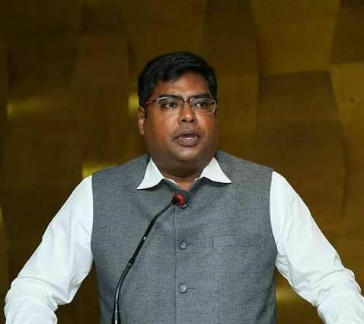
- Dr S Praveen Kumar, XXXXXXXXXXXX,
- Professor and Dean,
- Department of Commerce & Management, BIHER
As Dean of the School of Commerce and Management, we welcome you to our website and our School. Department of Management Studies is proud to NBA accredited, placing us in the elite league. We prepare our students to be outstanding business professionals—to be ready for the challenges they will face in an ever more global and dynamic business environment. Our faculty members are known for their commitment to teaching, while also pursuing meaningful research in their disciplines. Their engagement in the business community together with their deep subject matter knowledge enables them to provide excellent preparation for our students' future business careers.
The School of Commerce and Management has established and maintained a supportive community that allows for a high level of interaction among students, faculty and staff. We are proud of the rich array of leadership and professional development opportunities available to our students. We have a non-stop schedule of events – webinars, workshops, seminars, training sessions, symposia, conferences and more, designed to complement our challenging curriculum.
We are proud to have our alumni working at prestigious across the world. Our alumni are generous with their time, and have helped us to develop a strong network of business connections around the world. We are excited about the opportunities ahead of us and delighted to be working with such devoted faculty, staff and students. We are always interested in your input and ideas about ways we can make the School of Commerce and Management a more vibrant and exciting place. Please feel free to contact us to learn more about how you can connect with our School of Business.
2015 - 2016
2016 - 2017
2017 - 2018
2018 - 2019
2019 - 2020
FACULTY
Visiting / Adjunct
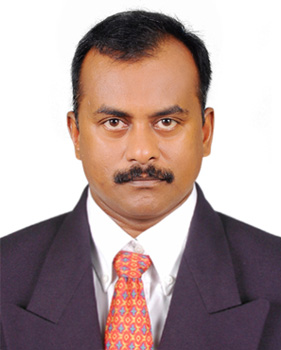
- Dr. M. Gurusamy
- Department of MBA & M.Com,
- Professor & Head
- Brindavan College, Yelahanka, Bangalore.
- gurusamyphd@gmail.com
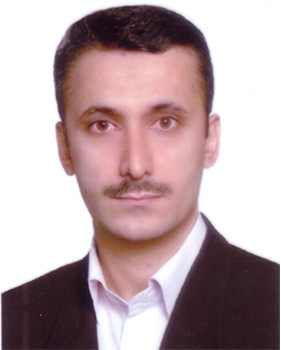
- Dr.Seyed Mohammad Hassan Hosseini
- Faculty of Industrial Engineering & Management
- Shahrood University of Technology,
- Shahrood, Semnan, Iran.
- sh.hosseini@shahroodut.ac.ir
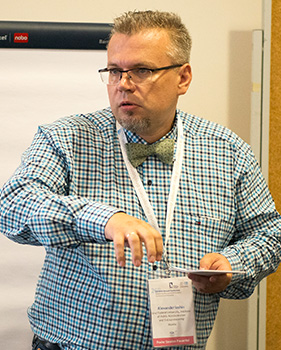
- Dr.Alexander Yashin
- Deputy Director for Academic Affairs
- School of Public Administration and Entrepreneurship,
Graduate School of Economics and Management,, - Ural Federal University named after the First President of Russia.
- a.a.yashin@urfu.ru
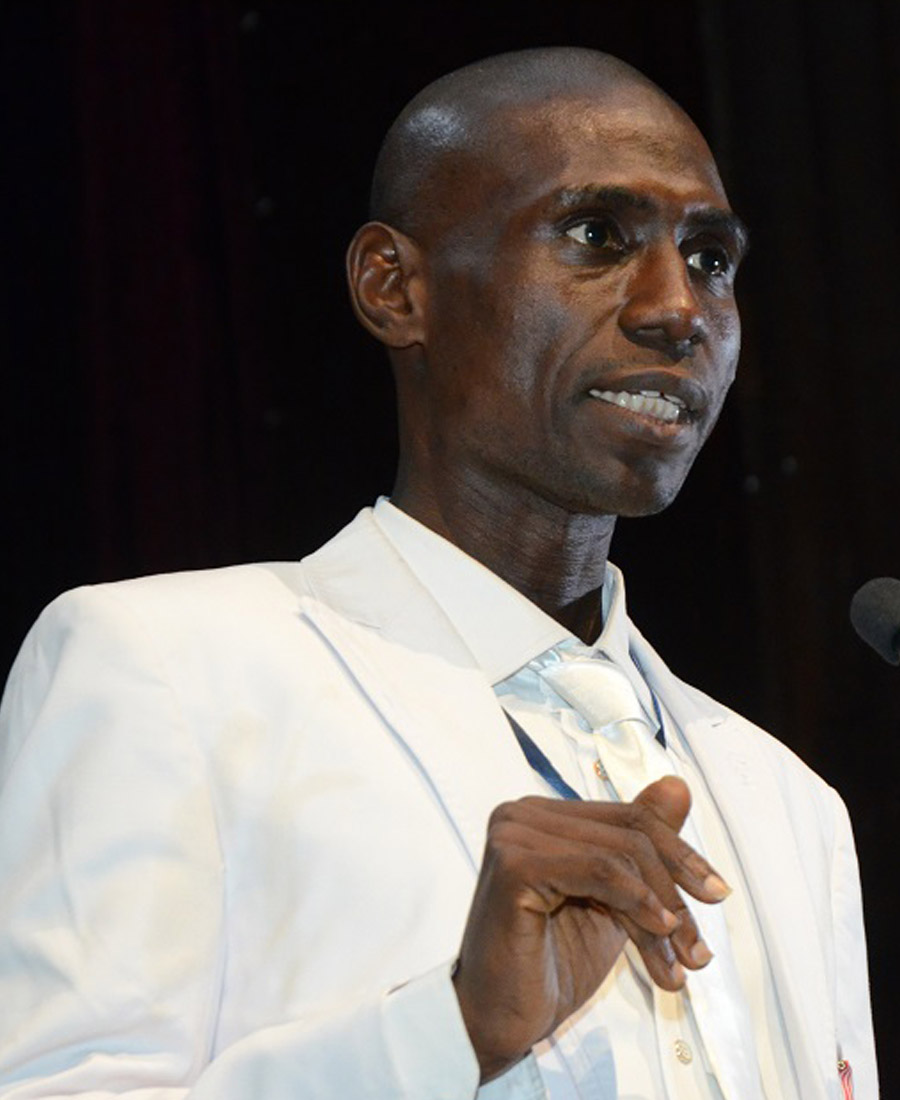
- H.E. UNESCO Laureate Prof. Sir. Bashiru Aremu
- The Vice Chancellor, Grand Ph.D., Post Doc', D'Sc., Ph.D.'
- School of Management & Commerce
- Crown University lnt'l Charted Inc (Americas, Ghana and Partner Campuses Worldwide)
- a.a.yashin@urfu.ru / africaitconsultancy@gmail.com
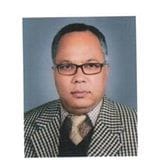
- Dr.Shyam Bahadur Katuwal
- Professor Faculty of Management
- School of Management & Commerce
- Tribhuvan University, Nepal Padmakanya Multiple Campus Bagbazar, Kathmandu, Nepal
- Shyam.katuwal@gmail.com
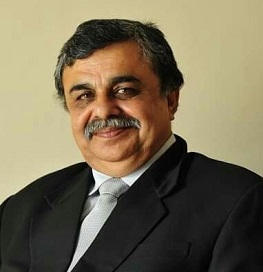
- Prof. Dr. Dilip Nandkeolyar
- Co Chancellor
- School of Management & Commerce
- Commonwealth University, London United Kingdom
- dilipnandkeolyar@hotmail.com
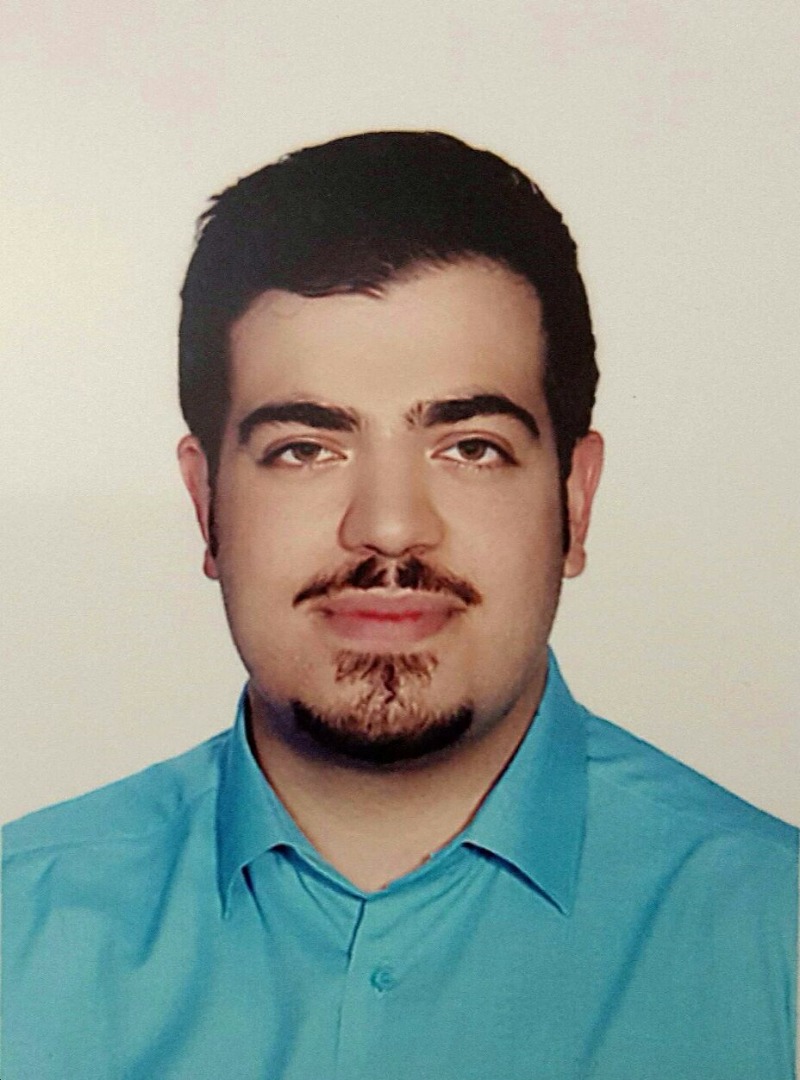
- Dr. Mostafa Alibeigi
- Chairman and Founder, MPRII Institute (Research and Training Institute)
- School of Management & Commerce
- Tehran, Iran
- mostafaalibeigi@gmail.com
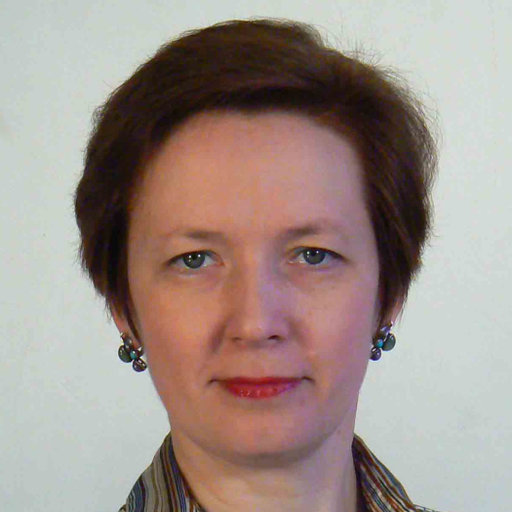
- Prof. Dr. Olga Lavrenova
- National University of Science and Technology (MISIS),
- Professor, School of Management & Commerce
- Russia
- olgalavr@mail.ru
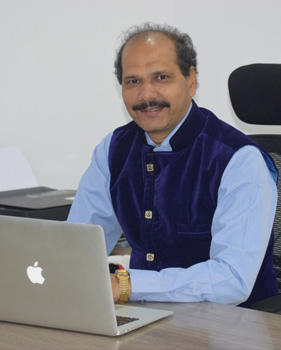
- Dr. Ch. Bala Nagaswara Rao
- Vice-Chancellor
- Saveetha Amaravati UniversitY, Vijayawada
- vicechancellor@saveethaam aravati.university.
- Prof. Soundararajan Ezekiel.,
- Department of Computer Science
- Professor at the Indiana University of Pennsylvania Indiana, Pennsylvania, United States
- sezekiel@iup.edu
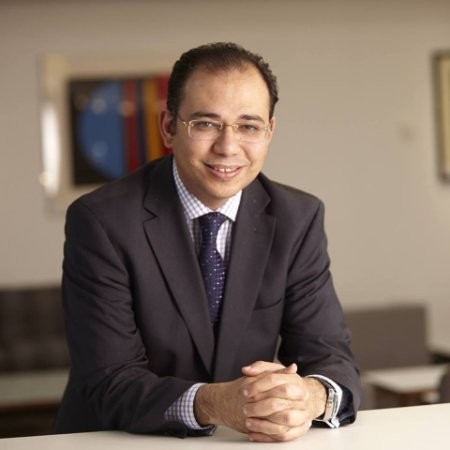
- Prof. Amir Michael.,
- School of Management & Commerce
- Professor of Accounting at Durham University Business School Durham, England, United Kingdom
- amirmichael77@gmail.com
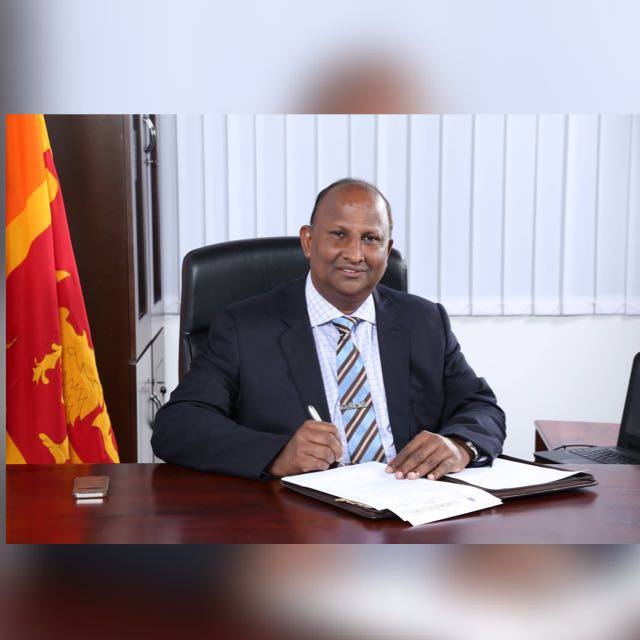
- Dr. SMM.Ismail.,
- Former Vice Chancellor
- South Eastern University of Sri Lanka , 44A/7, Jayasamagi Mawatha Kalubowila Srilanka
- smmismail@seu.ac.lk & ismaakmal@yahoo.co.uk
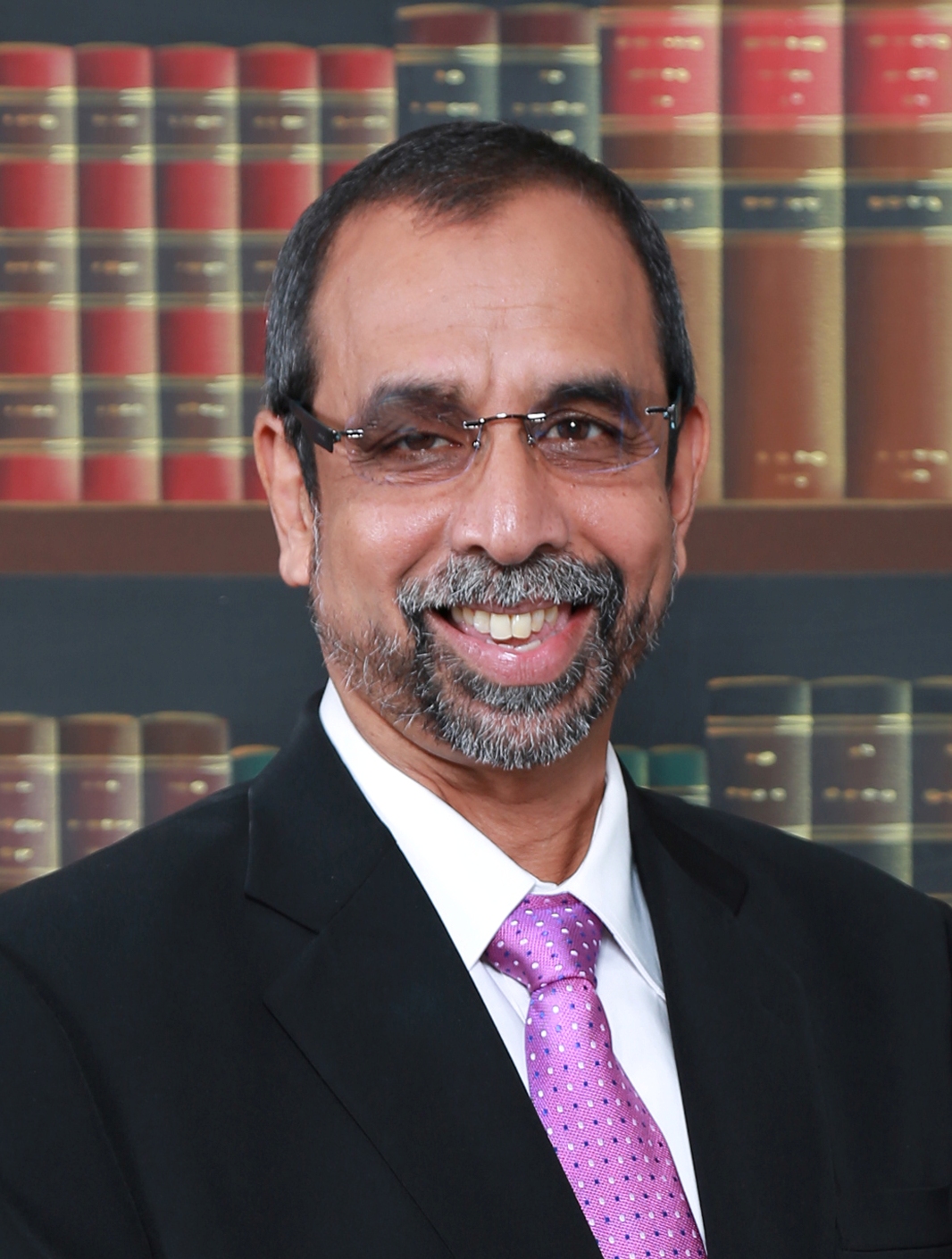
- Professor Datuk Dr.N.S.Rajendran, Ph.D.
- School of Management & Commerce
- (Michigan State) Adjunct Professor of Education University of Cyberjaya, Malaysia
- rajensaratha@gmail.com
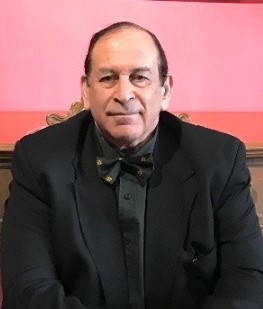
- Professor Dr. Gary Lilienthal
- Chairman of the Governing Council, Carrington Rand Hong Kong
- Professor of the University at Tashkent State University of Law, Uzbekistan
- glilienthal@me.com
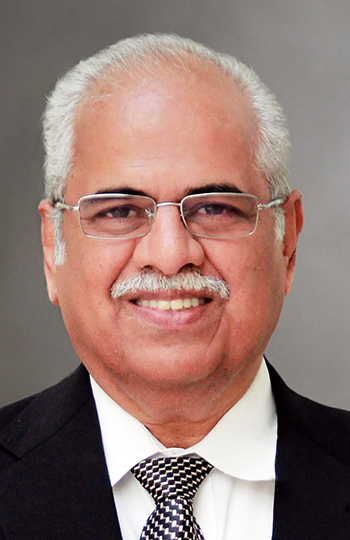
- Kishore G. Kulkarni, Ph.D.,
- Distinguished Professor of Economics
- Chief Editor, International Review of Business and Economics, (www.irbejournal.com) College of Business, Metropolitan State University of Denver, Denver, CO 80217-3362.
- kulkarnk@msudenver.edu
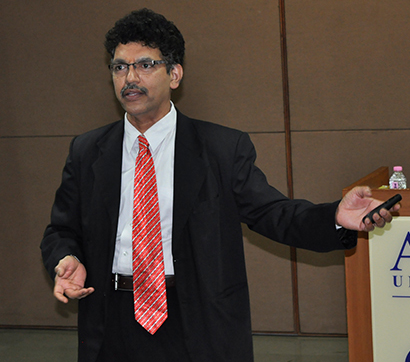
- Dr.C.Venkata Ramana
- Associate Professor & M.B.A. and Ph.D. Coordinator
- School of Business , AURO University Surat
- chivukula.ramana@aurouniversity.edu.in
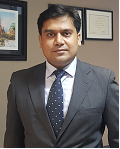
- Prof. S.M. Arifuzzaman
- Chief Strategy Officer (CSO) & Head,
- School of Business, Canadian University of Bangladesh & Director, Strategic Finance & Investment Limited Bangladesh .
- arif@cub.edu.bd
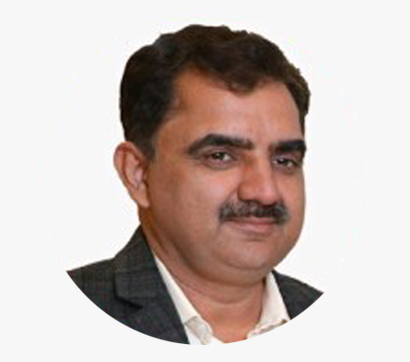
- Dr. Bhanu Pratap Singh
- Vice Chancellor ,
- Maharishi University of Information Technology Lucknow, Uttar Pradesh.
- bhanupratapmit@gmail.com
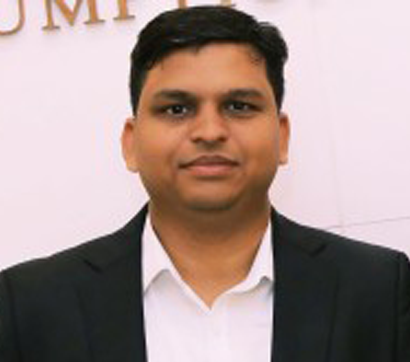
- Dr DINESH ELANGO., Ph.D.,
- Adjunct Professor of London Business University ,
- Lecturer of Business Management at Assumption University of Thailand, Thailand.
- vipdinesh@gmail.com
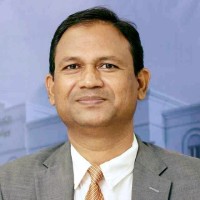
- Dr. GIRISH KUMAR PAINOLI., (Ph.D.)
- Professor ,
- Jain (Deemed-to-be University) Bengaluru, Karnataka, India .
- gkpainoli@gmail.com
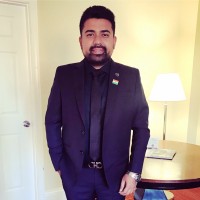
- Prof. Rohit Rammurthy
- Associate Dean
- Academic & Student Affairs Bangalore Urban, Karnataka, India .
- rohitrammurthy@gmail.com
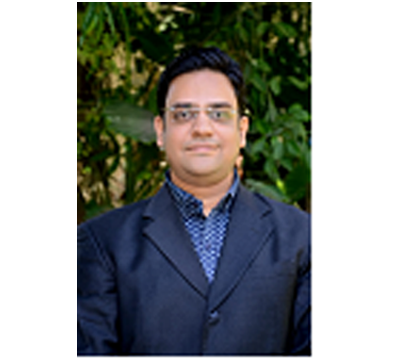
- Dr. Sachin Gupta
- Assistant Professor at Department of Business Administration,
- Faculty of Commerce, Mohanlal Sukhadia University, Udaipur
- sachin.gupta@jecrcu.edu.in
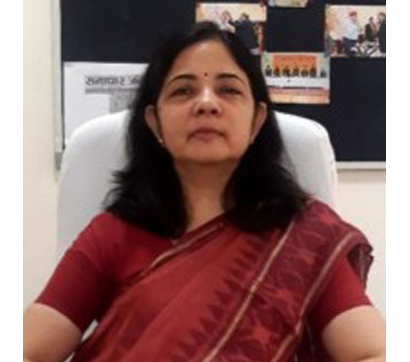
- Prof.Vaishali Sharma
- Pro Vice Chancellor
- Jagannath University, Jaipur r
- vaishali.sharma@jagannathuniversity.org
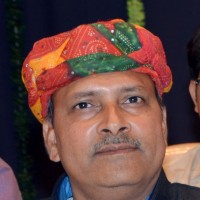
- Dr Vijay Pithadia
- Director MBA Program
- Rajkot, Gujarat, India
- vhpithadia@hotmail.com
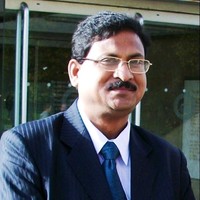
- Prof. Dr. S.K. Baral
- Professor & Head, Department of Commerce,
- Indira Gandhi National Tribal University (A Central University), M.P., India Anuppur, Madhya Pradesh, India
- drskbaral@yahoo.in
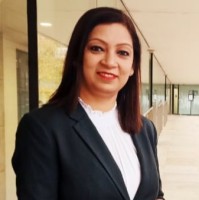
- CMA Nandita Mishra, Ph.D
- Ambassador - International Integrated Reporting Council ( IIRC)
- Country Director - HETL. Visiting Faculty at Linköping University Stockholm, Stockholm County, Sweden
- saanvinandita@gmail.com
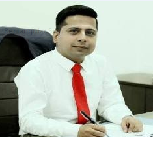
- Prof. DEEPAK DUDEJA
- Registrar
- Geeta Group of Institutions Haryana, India
- deepakdudeja1983@gmail.com
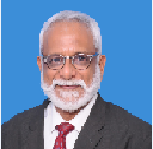
- Dr Balajee B R
- Founder & Managing Director,
- Bottomline Solutions & Services Pvt Ltd Chennai
- bottomline.balajee@gmail.com
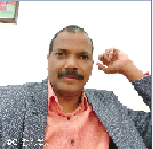
- Prof.Kalyan K. Sahoo
- Vice Chancellor,
- Arni University, Katgarh (Indora), Kangra Himachal Pradesh, India
- kalyan46@rediffmail.com
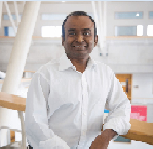
- Mr. Mohan Namasivayam
- Senior Lecturer in Strategy,
- University of Sunderland, Sunderland
- Mohan.namasivayam@sunderland.ac.uk
Faculty Profile
| S.No | Name | Designation | CV |
|---|---|---|---|
|
|
|||
|
|
|||
|
|
|||
|
|
|||
|
|
|||
|
|
|||
|
|
|||
|
|
|||
|
|
|||
|
|
|||
|
|
|||
|
|
|||
|
|
|||
|
|
|||
|
|
|||
|
|
|||
|
|
|||
|
|
|||
|
|
|||
|
|
|||
|
|
|||
|
|
|||
|
|
|||
|
|
|||
|
|
|||
|
|
|||
|
|
|||
|
|
|||
|
|
|||
|
|
|||
|
|
|||
|
|
|||
|
|
|||
|
|
|||
|
|
|||
|
|
|||
|
|
Board of Studies
Members of BOS ( June 2024 – May 2025 ) :
| S.No | Name | Designation | Core Competency |
|---|---|---|---|
|
|||
|
|||
|
|||
|
|||
|
|||
|
|||
|
|||
|
|||
|
|||
|
|||
|
|||
